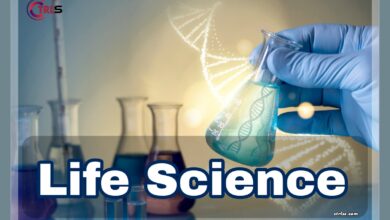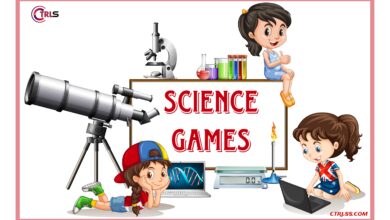What’s the Deal with Science, Anyway?
What are the types of science?
Science : It’s one of those words that gets tossed around a lot, but what does it really mean? Well, my friend, sit back, relax, and let’s dive into the wonderful world of science. In this article, we’re going to explore the various types of science that exist, from the mind-boggling realms of physics to the intricate workings of biology. So, buckle up and get ready for a scientific adventure!

The Science Spectacle Unveiled
Science, my dear reader, is the systematic study of the natural world. It’s an attempt to understand how things work, why they behave the way they do, and to make sense of the wonders that surround us. It’s all about observation, experimentation, and trying to uncover the hidden truths that govern our universe.
Now, let’s take a closer look at the different types of science that make up this grand spectacle:
1. Physical Science: The Law-Abiding Citizen
Physical science is all about the study of non-living matter and energy. It’s like the Sherlock Holmes of science, investigating the mysteries of the physical world. This type of science includes disciplines such as physics and chemistry.
Physics is the science of matter, motion, and the forces that govern them. It delves into the realms of energy, gravity, and the mind-bending world of quantum mechanics. From the tiniest particles to the vast expanse of the cosmos, physics seeks to unravel the underlying principles that shape our universe.
Chemistry, on the other hand, deals with the composition, properties, and behavior of matter. It’s all about the elements, compounds, and reactions that occur in the world around us. Think of it as the mad scientist’s playground, where molecules dance and atoms collide in a mesmerizing display.
2. Life Science: The Web of Life
Life science, also known as biological science, is the study of living organisms and their interactions with the world. It’s like a fascinating journey into the intricate web of life itself. This type of science encompasses biology and its various branches.
Biology is the study of life in all its forms, from the smallest microorganisms to the towering giants of the animal kingdom. It explores the complexities of cells, genes, ecosystems, and everything in between. Biology is like a never-ending puzzle, with each piece revealing a new aspect of the miracle of life.
Within the realm of biology, we find specialized branches that focus on specific aspects of living organisms:
- Ecology examines the interactions between organisms and their environment. It’s all about understanding the delicate balance of nature and how living beings adapt and thrive in their habitats.
- Genetics unravels the mysteries of heredity and the transmission of traits from one generation to the next. It’s like a code-cracking adventure, where genes hold the key to our biological inheritance.
- Microbiology delves into the world of microorganisms, such as bacteria, viruses, and fungi. It explores their structure, behavior, and the roles they play in our health and the environment.
3. Social Science: The Human Experience
Last but certainly not least, we have social science, which focuses on the study of human behavior and society. It’s like a captivating story of our own species, with all its complexities, quirks, and triumphs. Social science encompasses disciplines such as psychology, sociology, and anthropology.
Psychology is the scientific exploration of the mind and behavior. It seeks to understand why we think, feel, and act the way we do. From the depths of our subconscious to the heights of human potential, psychology shines a light on the workings of the human psyche.
Sociology takes a wider lens and examines the structures and dynamics of human society. It’s like a cultural safari, exploring how groups, institutions, and social norms shape our lives and interactions. Sociology helps us understand the complex tapestry of human relationships and the forces that bind us together.
Anthropology ventures into the realm of human diversity and our rich cultural heritage. It explores the origins, development, and customs of different societies around the world. Anthropology celebrates the beauty of human variation and sheds light on the shared experiences that make us who we are.
Science: A Journey of Discovery
And there you have it, my friend! A glimpse into the marvelous world of science and its various types. From the laws that govern the physical realm to the wonders of life and the intricacies of human society, science is a never-ending adventure.
So, the next time you hear the word “science,” remember that it’s not just a term thrown around casually. It’s a gateway to understanding the world around us, a tool to unravel the mysteries that lie hidden beneath the surface. Embrace the spirit of curiosity, and let science be your guide on the journey of discovery.
Now, go forth and explore, my fellow adventurer. Embrace the Science Journey!
Science, my friend, is an exhilarating expedition into the unknown. It’s a quest to uncover the secrets of our universe and make sense of the wonders that surround us. In this article, we’re going to embark on a thrilling ride through the various types of science. From the mind-boggling realms of physics to the intricate workings of biology, we’ll explore it all! So, fasten your seatbelt and get ready for a scientific adventure like no other!
The Science Odyssey Unveiled
What is science?
Science is the systematic exploration of the natural world. It’s like a detective story, where we seek to unravel the mysteries of how things work and why they behave the way they do. Science involves careful observation, bold experimentation, and the pursuit of knowledge that knows no bounds.
Now, let’s delve into the captivating tapestry of science and discover its different types:
What are the types of science?
1. Physical Science: Unleashing the Forces
Physical science is all about the study of non-living matter and energy. It’s like a law-abiding citizen, seeking to understand the rules that govern the physical world. This type ofScience encompasses disciplines such as physics and chemistry.
Physics is the science of matter, motion, and the forces that shape our universe. It’s a cosmic adventure that takes us from the tiniest particles to the vast expanse of space. Physics unravels the mysteries of energy, gravity, and the mind-bending realm of quantum mechanics.
Chemistry is the science of matter’s composition, properties, and transformations. It’s like a magical cauldron where elements combine, and compounds arise. Chemistry investigates the building blocks of life, the reactions that occur, and the remarkable substances that surround us.
2. Life Science: The Symphony of Life
Life science, also known as biological Science, delves into the study of living organisms and their interactions. It’s like a symphony of life, where every note plays a vital role. This type ofScience includes the vast field of biology and its various branches.
Biology is the study of life in its diverse forms, from the microscopic to the majestic. It’s an intricate puzzle, where we uncover the secrets of cells, genes, and ecosystems. Biology takes us on a journey through the wonders of nature, revealing the incredible beauty and complexity of living organisms.
Within the realm of biology, we encounter specialized branches that focus on different aspects of life:
- Ecology examines the relationships between organisms and their environments. It’s like a delicate dance between living beings and their habitats. Ecology unravels the intricate web of life, showcasing the interdependence and balance in nature.
- Genetics dives into the mysteries of heredity and the transmission of traits. It’s like a treasure hunt, where genes hold the key to our biological inheritance. Genetics reveals the secrets of DNA, unraveling the intricate code that shapes who we are.
- Microbiology explores the captivating world of microorganisms, such as bacteria, viruses, and fungi. It’s a microscopic adventure, where we uncover the hidden forces that impact our health and the environment. Microbiology showcases the diversity and importance of these tiny but mighty organisms.
3. Social Science: Unraveling the Human Tapestry
Last but not least, we have social science, which focuses on the study of human behavior and society. It’s like an enthralling tale of our own species, with all its complexities and nuances. Social science encompasses disciplines such as psychology, sociology, and anthropology.
Psychology is the scientific exploration of the human mind and behavior. It’s like a journey into the depths of our consciousness. Psychology seeks to understand why we think, feel, and act the way we do. It unravels the mysteries of the human psyche, shedding light on our emotions, thoughts, and experiences.
Sociology takes a broader perspective and examines the structures and dynamics of human society. It’s like a cultural expedition, where we explore the customs, norms, and interactions that shape our lives. Sociology helps us understand the intricate web of social relationships and the forces that bind us together as a society.
Anthropology ventures into the realm of human diversity and cultural heritage. It’s like a voyage across continents, exploring the origins, traditions, and beliefs of different societies. Anthropology celebrates the richness of human variation, showcasing the beauty of different cultures and the shared experiences that unite us all.
Science: A Journey of Wonder
And there you have it, my friend! A glimpse into the marvelous world ofScience and its various types. From the laws that govern the physical realm to the wonders of life and the intricacies of human society, science is an awe-inspiring journey.
Thank You For Reading!



